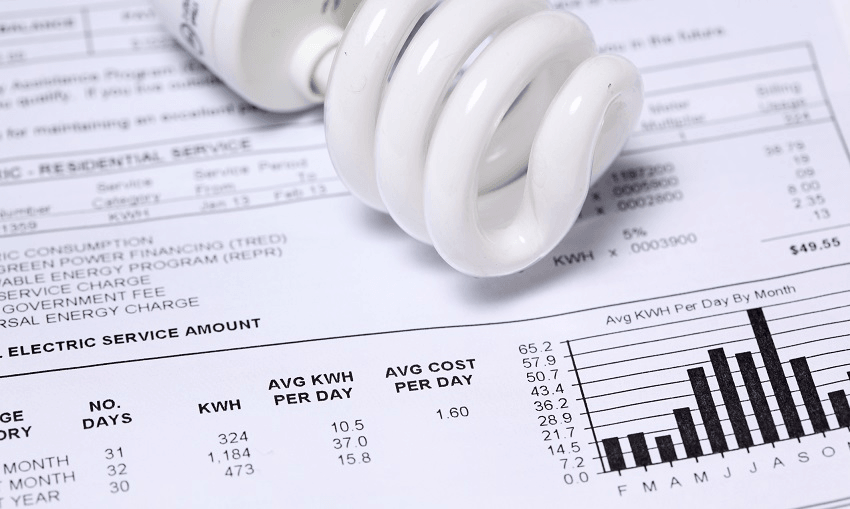What effect will the government’s changes to the electricity market have on consumers? Here’s what you need to know.
What’s happening?
The government has just announced a series of changes designed to protect consumers in the electricity market. The changes are in response to recommendations made by the Electricity Price Review (aka a panel set up by the government to review the entire energy sector).
A review of the energy sector? What’s wrong with it?
Electricity prices, especially for residential consumers, have increased faster than inflation for many years. In fact, the review found that after adjusting for inflation, households were paying almost 80% more for power today than in 1990. As a result, it’s put a massive strain on many people’s budgets. Meanwhile, energy poverty has become an increasingly dire issue (the government has tried to stem this by introducing the Winter Energy Payment for seniors and families).
Other issues the review found was the formation of a two-tier market (ie those who actively seek out better deals paying less than those who don’t), “prompt-payment discounts” (which many have accused as late payment penalties in disguise) disadvantaging lower-income New Zealanders the most, and the cost caused by disruptive technologies (electric cars, solar panels, etc.) falling mostly “on those least able to afford them”.
So what changes have been announced?
“Right now, our electricity system is dominated by a small number of big ‘gentailers’ – companies that generate and sell electricity,” said Minister of Energy and Resources Megan Woods.
“It can be too hard for small and independent retailers to compete and survive, meaning fewer choices for consumers and less innovation in the market. We are changing the market to level the playing field and boost competition.”
These changes include:
- Requiring the big power companies to sell into the wholesale market at affordable rates.
- Extending discount rates to all customers, including an end to prompt-payment discounts
- Introducing a pilot scheme to help customers who haven’t switched power providers before to shop around for better deals, but also requiring power companies to put information about how to switch on the communications they send consumers.
- Putting a moratorium on “win-backs” that companies use to stop customers switching between providers.
How far does this go to actually benefit consumers?
Consumer NZ welcomed the announcement, noting that consumer protections in the electricity market have long been overdue. It particularly welcomed the end to prompt payment discounts. “These discounts are effectively a late payment fee in disguise and penalise consumers who can least afford it,” said head of research Jessica Wilson. “If companies don’t remove the discounts, which are costing consumers an estimated $45 million, they now face legislation forcing them to do so.”
National, however, was far less effusive over the announcement. In a statement, Energy and Resources spokesperson Jonathan Young accused the government’s response to the Electricity Price Review as failing to deliver meaningful savings for New Zealanders struggling with the rising cost of living.
“It is not good enough that the Government has failed to identify how much, if anything, these changes will reduce New Zealanders’ electricity bills by every year,” he said. “Some changes seem perverse and poorly thought through, such as removing prompt payment discounts while retaining late payment fees.
“These discounts can reduce electricity bills by up to $600 a year for the average household.”
Young also criticised the decision to ban new oil and gas exploration which he argued would increase weekly power prices for New Zealanders, increase global carbon emissions and risk our energy security.
Meanwhile, BusinessNZ Energy Council (BEC) welcomed the government’s “measured response” but warned that it needs to be mindful of wider factors outside of the electricity market, like implications of a tight gas market, the likely increase in carbon prices, uncertainty around the consenting of renewable electricity generation projects and water reforms.
And the retailers? What do they make of all this?
So far, the response has been broadly supportive. Meridian’s chief executive Neal Barclay said he was pleased with the proposals to phase out the low user tariff regulations and encourage all retailers to stop clawing back prompt payment discounts (Meridian decided to scrap these discounts last year – Barclay said that if all retailers did the same, New Zealand consumers would save about $45 million a year).
Flick Electric called it a “win for consumers, finally”. CEO Steve O’Connor said, “I’m thrilled to see the government lay a path towards a fairer Aotearoa where consumer voices are heard, and energy poverty is addressed … We’ve been arguing for the industry to do better for consumers, remove inappropriate prompt payment discounts, win-back and saves since 2014, so it’s good to see we’re finally seeing action on these unethical practices.”
In a statement, the Electricity Retailers’ Association (ERANZ) welcomed the majority of the recommendations and said it looked forward to working with the government to develop further details.
“The review shows the electricity sector is delivering for Kiwis. Retail competition between 40 power companies is driving innovation and keeping prices down,” ERANZ Chief Executive Cameron Burrows said.
“The annual average power bill is down $120 since 2015, we have the 12th cheapest electricity in the OECD, and customer switching is at the highest level in eight years.”


